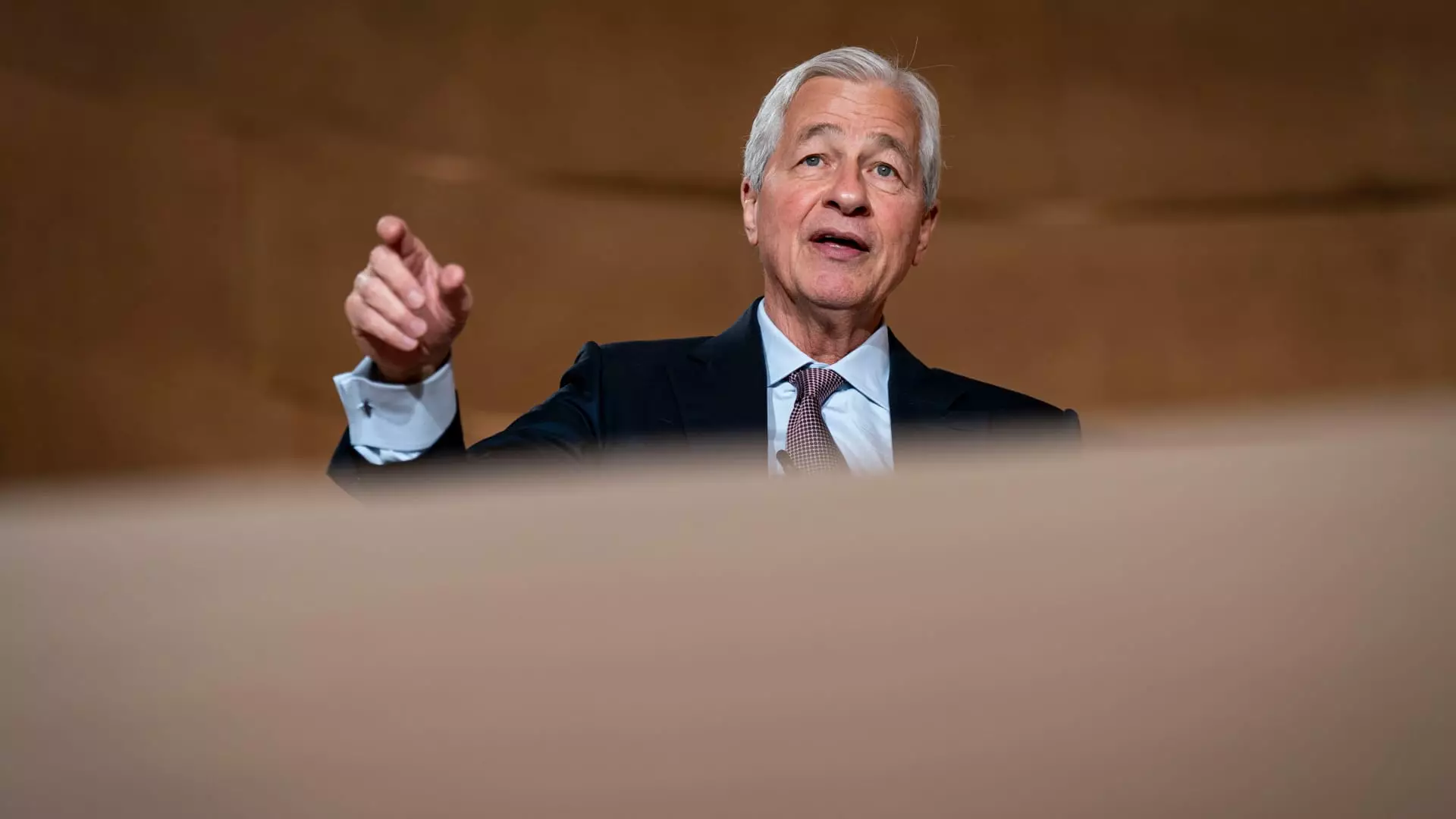In an age where optimism often overshadows caution, Jamie Dimon, the formidable CEO of JPMorgan Chase, stood against the tide on a recent investor day, airing concerns that resonate profoundly with astute analysts and economists alike. Dimon articulated a stark warning about the prevailing U.S. economic climate, expressing that the market’s buoyant attitude toward future earnings and growth fails to grasp the impending risks posed by soaring national deficits, precarious international tariffs, and the unpredictable nature of global trade tensions. His call for vigilance is not only timely but perhaps necessary for anyone invested in understanding the underlying factors that could disrupt an otherwise flourishing market.
Jamie Dimon’s remarks resonate particularly in our current economic landscape, where the prevailing attitude among investors may come off as overly optimistic. His assertion that “we have huge deficits…almost complacent central banks” is not merely a rhetorical flourish; it underscores a critical reality. Investors often prefer to cast a veneer of confidence while ignoring the elephant in the room—the precarious economic foundation built upon ever-increasing debt and risky trade policies. Dimon’s insights challenge the prevailing complacency and suggest that hubris could set the stage for an economic downturn that would affect us all.
The Illusion of Recovery: An Unsustainable Market
Dimon’s view that stock valuations are inflated seems justified, especially when juxtaposed against the backdrop of actual economic indicators. He highlighted the disparity between sentiment in the market and the tangible indicators of economic health. The comeback of stock prices from a 10% dip, which he referred to as “extraordinary complacency,” is a manifestation of market myopia, where investors are fixated on short-term gains rather than the broader implications of fiscal irresponsibility.
Furthermore, his observations perfectly align with the recent actions of credit rating agencies like Moody’s, which downgraded the United States’ credit rating due to rising debt levels. This tangible shift in creditworthiness should act as a wake-up call for investors. Dimon’s emphasis on the impending adjustment of earnings projections reflects a reality that the roaring stock market we experienced may not only be unsustainable but, in fact, detrimental.
The Unforeseen Perils of Stagflation
Perhaps the most alarming aspect of Dimon’s commentary was his assertion that the odds of stagflation—a stagnation in economic growth combined with inflation—are grossly underestimated. Echoing sentiments from the 1970s economic crisis, the warning about stagflation should strike fear into the hearts of both average citizens and investors alike. The repercussions of stagnation compounded with rising prices could spell disaster for the global economy, and yet, there seems to be a collective blindness to this looming threat.
Dimon suggested that projections for the earnings growth of S&P 500 companies could dwindle to zero, raising questions about the sustainability of corporate profits and the resultant impact on stock prices. If indeed the market reflects a reluctance to face this reality, it becomes imperative for individual investors to reassess their positions. Ignoring such warnings could lead to catastrophic financial consequences for those who remain anchored in outdated beliefs about the direction of the economy.
Corporate Hesitance: A Prelude to Caution
It’s noteworthy that Dimon’s concerns about the mood of corporate giants add another layer of complexity to this financial narrative. Companies are reportedly in a “wait-and-see” mode regarding acquisitions and other strategic moves, signifying a lack of confidence in the near future. This hesitation from corporate leaders suggests they too recognize the fragile nature of our current economic scenario, further reinforcing Dimon’s dire outlook.
If the backing sentiment among corporate America is one of caution, should individual investors not heed their lead? The precarious balance of investing hinges on more than mere market momentum; one must consider the broader socio-economic pressures influencing corporate behavior and public belief in the strength of financial systems.
As the conversation around economic stability continues to evolve, leaders like Jamie Dimon serve as essential voices reminding us to remain vigilant. Their insights compel us to confront uncomfortable truths within the vast narratives being spun in noble pursuit of growth and wealth. Only by addressing these risks head-on can we hope to protect the economic foundations that support our aspirations for a prosperous future.

Leave a Reply